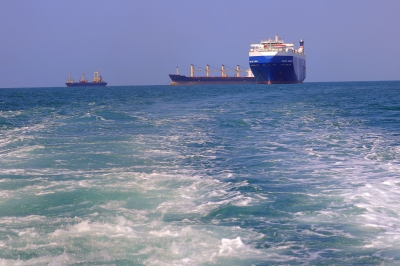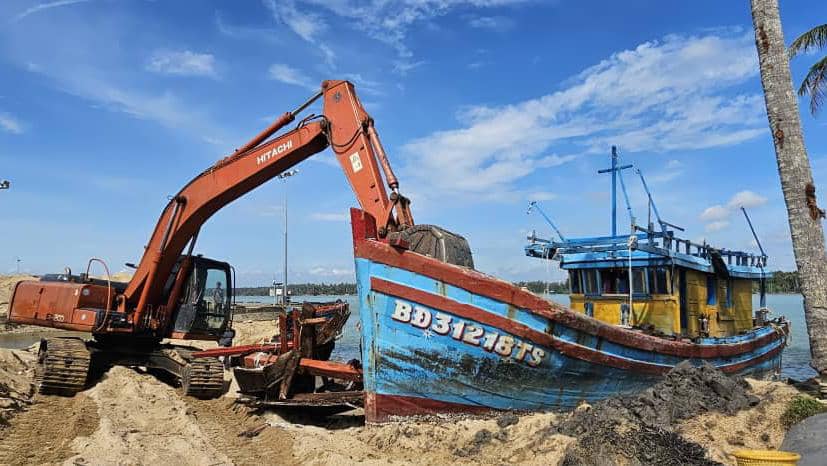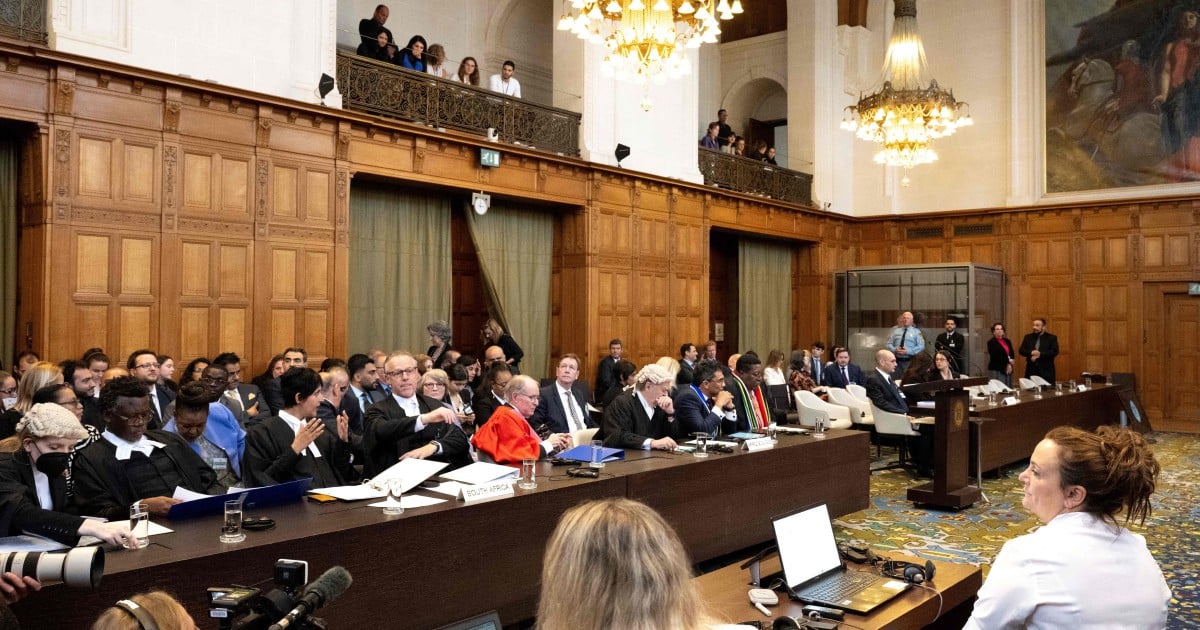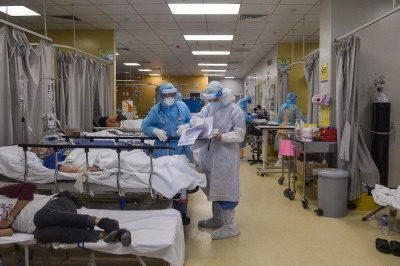KUALA LUMPUR, Jan 18 — The ongoing Red Sea crisis has prompted a significant rerouting of ships, impacting the global shipping industry, while Malaysia’s shipping sector currently navigates the situation with relative resilience, concerns are mounting over potential long-term consequences.
Approximately 80 per cent of ships have opted to reroute through the Cape of Good Hope, avoiding the Red Sea due to recent Houthi militia attacks. This strategic move, while preventing major disruptions reminiscent of the Covid-19 era, is not without its challenges.
Deputy president of the Shipping Association of Malaysia (SAM) Thum Hoong Yip said trade routes to the United States and Europe are mostly affected and freight rates have doubled or more, driven by extended travel times, supply chain disruptions, and additional operational costs.
Despite these challenges, Malaysia finds some solace in reduced dependence on European markets. Thum said intra-Asia trade, especially with key partner China, has grown over the years. However, concerns persist about the potential long-term ramifications if the Red Sea crisis drags on.
Advertisement
“Exporters and importers, particularly those dealing with Europe and the Mediterranean market face unforeseen rate hikes affecting their bottom line. They are in locked contracts so to see a sudden hike in prices will definitely impact their costs.
“In Malaysia, however, we are fairly insulated from the crisis as we do mostly intra-Asia trade. Our biggest partners are China, South Korea and Japan. Plus Europe is no longer a global manufacturing or production powerhouse; that’s China and India,” Thum told Malay Mail.
“So, with more raw goods coming from Asia and mainly high-value goods coming from Europe the impact of the crisis is somewhat cushioned. We will face bigger problems if this crisis prolongs,” he said.
Advertisement
Typically, the most efficient and commonly used route for tankers travelling between Europe and Asia is the Suez Canal, which connects the Mediterranean Sea to the Red Sea.
However, if the security situation in the Red Sea, particularly around the Gulf of Aden and the Bab el-Mandeb Strait, is deemed unsafe due to piracy and other security concerns, tankers may opt for the longer route around the Cape of Good Hope.
Travelling through the Cape of Good Hope, Africa’s southernmost tip, adds a minimum of 14 days of extra travel depending on where you are coming from and how heavy your freight is. This indirectly impacts costs for crew, safety issues, logistics cancellations and rescheduling, and increases offloading and onloading times; ultimately, impacting scheduling.
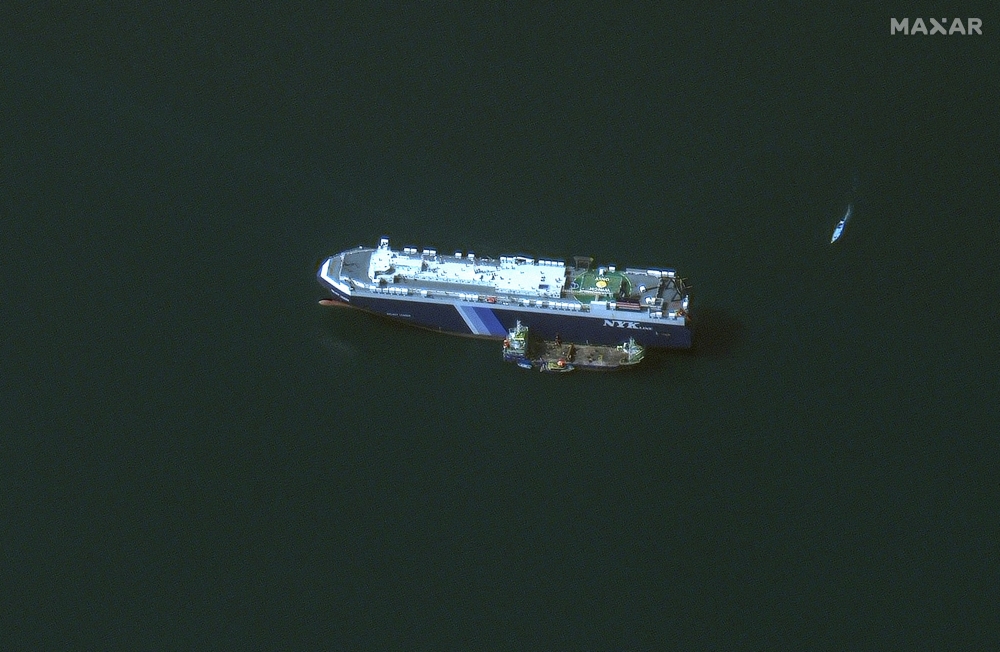
This handout satellite picture released by Maxar Technologies on November 28, 2023, shows the recently seized Isreali-linked Galaxy Leader ship, that was captured by Houthi fighters on November 19, next to a support vessel in the southern Red Sea near Hodeida, Yemen. — 2023 Maxar Technologies handout pic via AFP
Datuk Tony Chia, president of the Selangor Freight Forwarders and Logistics Association, concurred with Thum in that the situation was still under control but warned of a rising cost of containers due to shortages.
This would have an immediate impact on costs which he feared would have to be borne by the consumer.
“Container surcharges have risen to around US$400 (RM1,890) per container, and as shippers, you have no choice but to pay that amount because it is already loaded (onto the ship). Add to that the clause between traders whereby any delay is incurred by the party that is late, then now you have another additional cost due to the rerouting.
“Most of the shippers affected by this are those from China and Japan as they export a lot to the US and Europe compared to Malaysia which is minimal. Also, as far as freight rates are concerned, they are not at a fixed price.
“Meaning different liners have different rates. You cannot fix a particular rate when exporting to Europe and another fixed rate to China that can be deemed as price fixing and the Malaysia Competition Commission is monitoring that. So the rise in prices will vary as well depending on where you are,” said Chia when contacted.
“In the end, the ones affected are the importer and the exporter, and not so much the shippers and liners. The issue is in the end the consumer will be the one to feel the brunt as the hike in rates could reflect in the prices of goods.”
Recent attacks by Houthi militia in the Red Sea have raised concerns about the security of the vital shipping region, particularly impacting the shipping industry in Malaysia. The Houthi rebels claim to target Israeli-linked vessels in protest of Israel’s actions against Hamas in Gaza.
The UN Security Council (UNSC) has called for an immediate end to the attacks, and the US and United Kingdom have launched strikes against the rebels in Yemen. The Bab al-Mandab Strait, a crucial oil transit point between Yemen and Djibouti, witnesses approximately 33,000 merchant ships passing through annually.
The insecurity poses a significant threat to global trade and energy transportation, leading to increased costs. The region’s geopolitical importance is evident from the presence of military bases belonging to countries such as Turkey, the United Arab Emirates, Saudi Arabia, China, the US, Italy, France, and Japan.
Various regional crises, including the Yemen-Saudi Arabia War and tensions over territorial claims, ideological differences, and ethnic divisions, contribute to the security challenges in the Red Sea. Smuggling, both of goods and people, is another escalating issue, impacting regional stability and providing funding for civil wars and terrorist activities.
Due to the crisis, shipping lines have begun rerouting their vessels through the Panama Canal as of December last year, but the 82km artificial waterway is experiencing a drought, causing its water levels to be deemed too shallow for boats to dock.
Malay Mail has also reached out to the Malaysia Shipowners’ Association and are awaiting their response.


